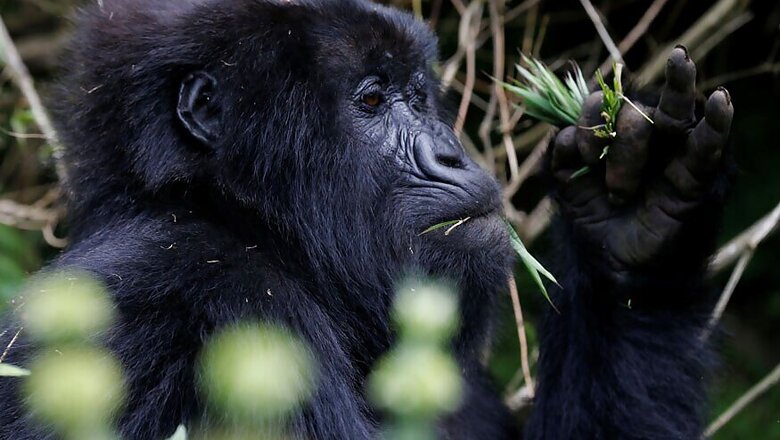
views
Scientists from the Wellcome Sanger Institute and the University of Montpeller have discovered how the world's deadliest malaria parasite managed to jump from gorillas to humans by resurrecting a 50,000-year-old gene sequence.
According to the researchers, the study enhances the understanding of a process called zoonosis, where a pathogen, then can infect animals, acquires genetic changes, thus enabling it to infect humans.
A report in Vet Candy says that researchers found that the rh5 gene enables the parasite to infect both gorillas and humans for a limited time.
The study, published in PLOS Biology, attempts at providing a molecular explanation for how one of the world's deadliest diseases came to infect humans and provides pathways as to how pathogens are able to jump inter-species.
P. falciparum is one of seven species of parasite that can cause malaria in a family known as Laverania. Originating in African great apes, they are restricted to their own specific host species, with three parasite species confined to chimpanzees and three to gorillas. The seventh, P. falciparum, only infects humans, after switching host from gorillas through a process known as zoonosis around 50,000 years ago.
Speaking about the same, Francis Galaway, co-author of the study said that the fact that the ancestral RH5 protein was able to bind to red blood cell receptors from both species provided a molecular explanation for how P. falciparum evolved to infect humans.
Further, Dr Franck Prugnolle said that it was fascinating to be able to 'resurrect' ancestral genes such as the one which allowed Plasmodium falciparum to jump from gorillas to humans.
According to researches, the type of introgression event that may have resulted in the P. falciparum jumping from gorillas to humans is extremely rare and among the seven Laverania species, comparative genome analysis has revealed that there have only been a few instances over a span of around one million years when a sequence of DNA was transferred from one parasite to another.
Dr Gavin Wright, the lead author of the study was quoted by the report as having said that in the history of humans, Plasmodium falciparum malaria has perhaps been responsible for more number of human deaths than any other disease. According to him, it is thus both important and fascinating to understand the molecular pathways that enable the deadly parasite to infect humans.


















Comments
0 comment